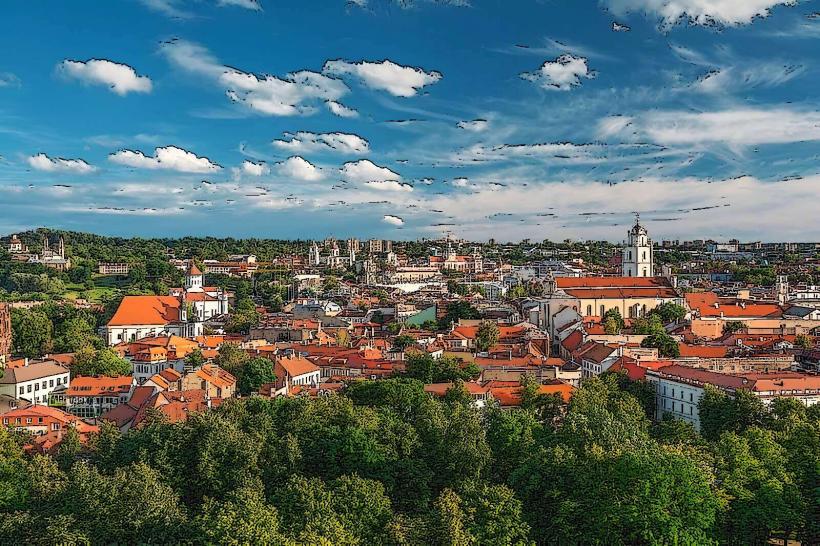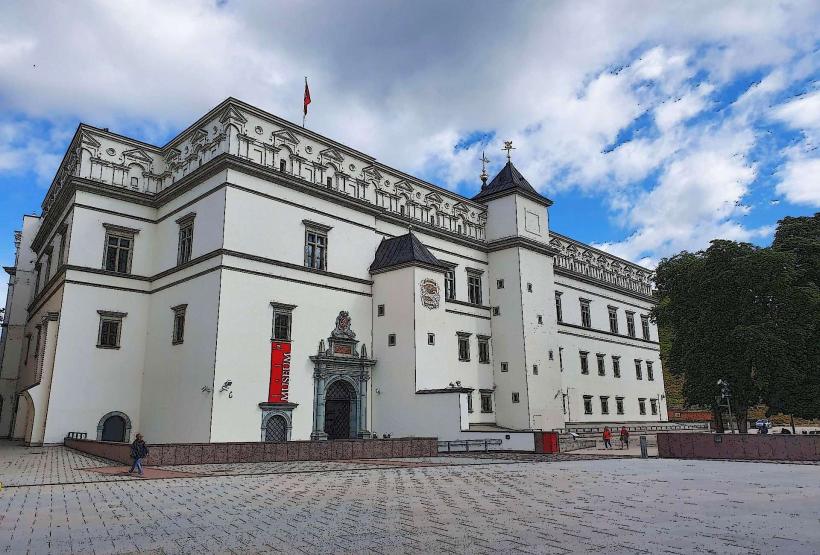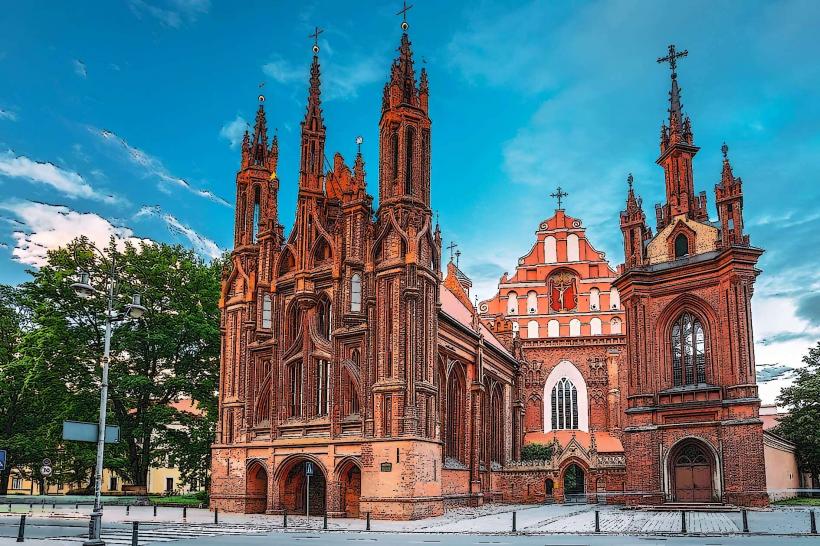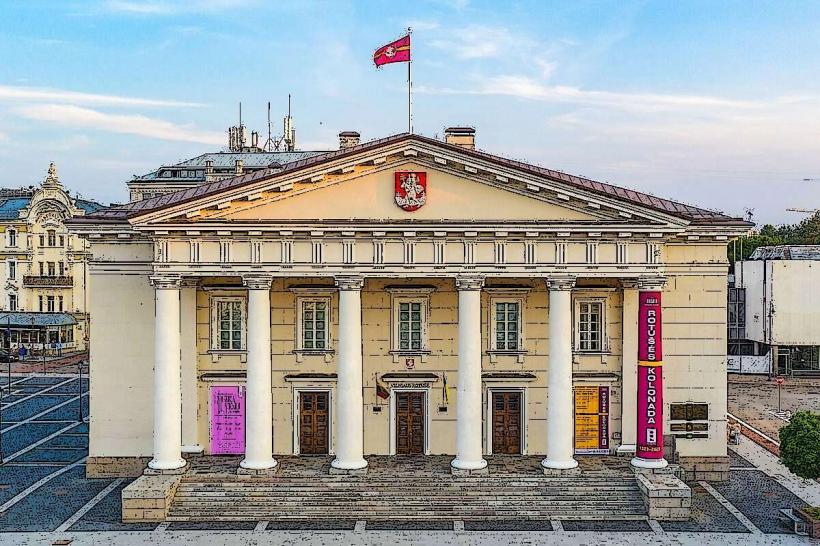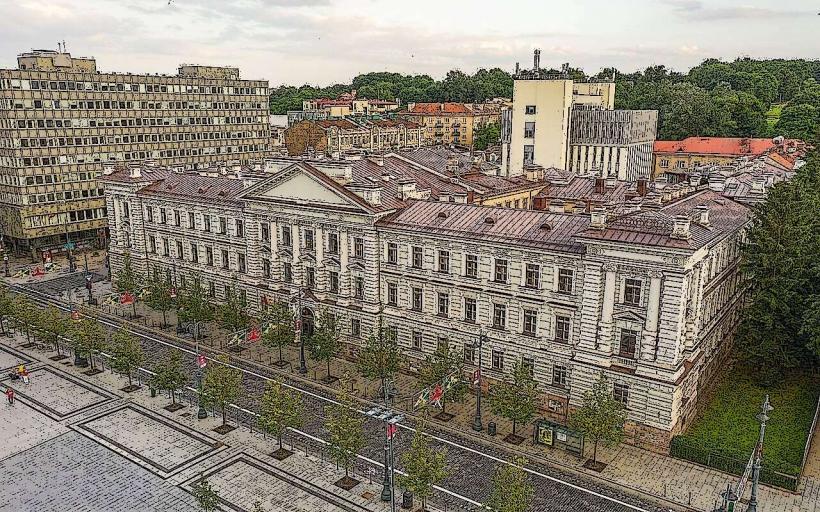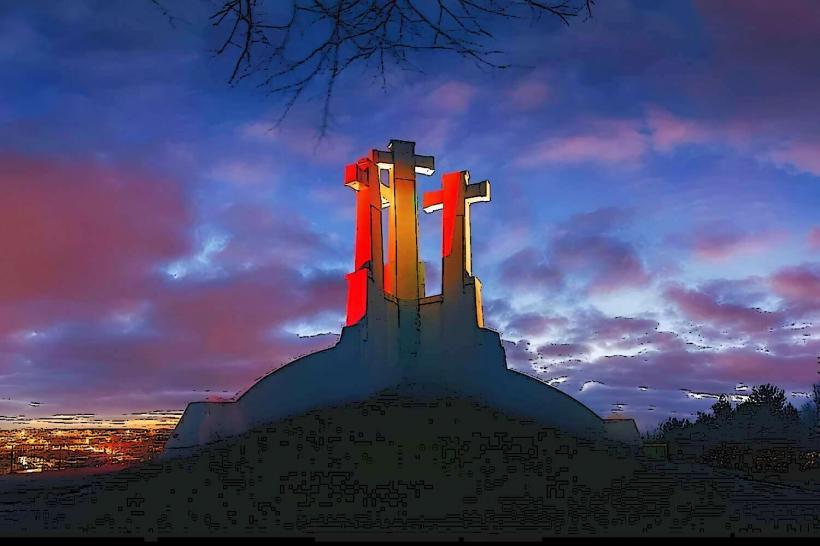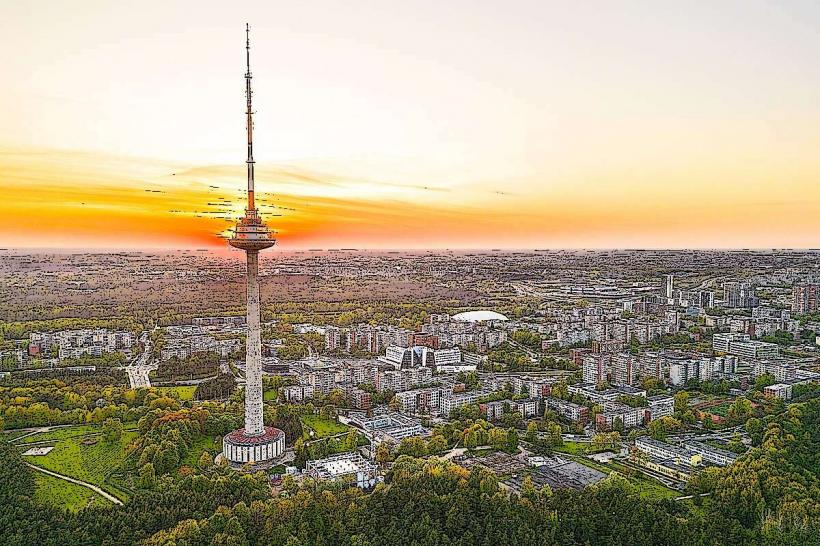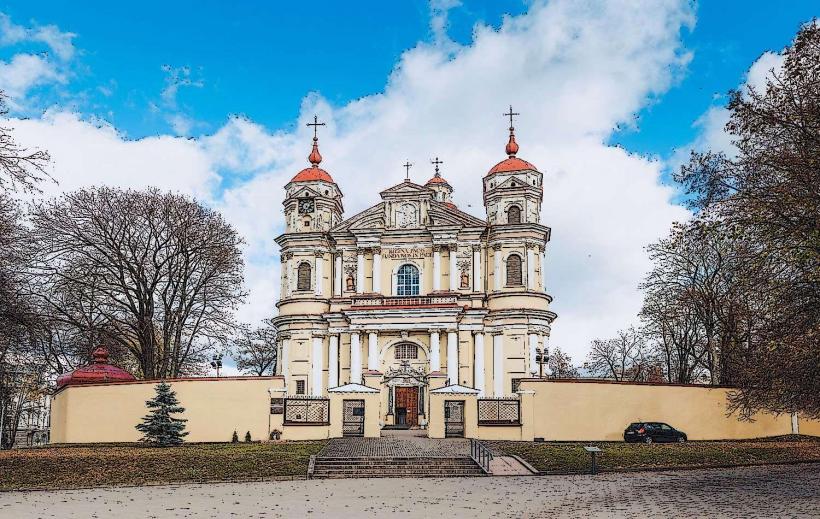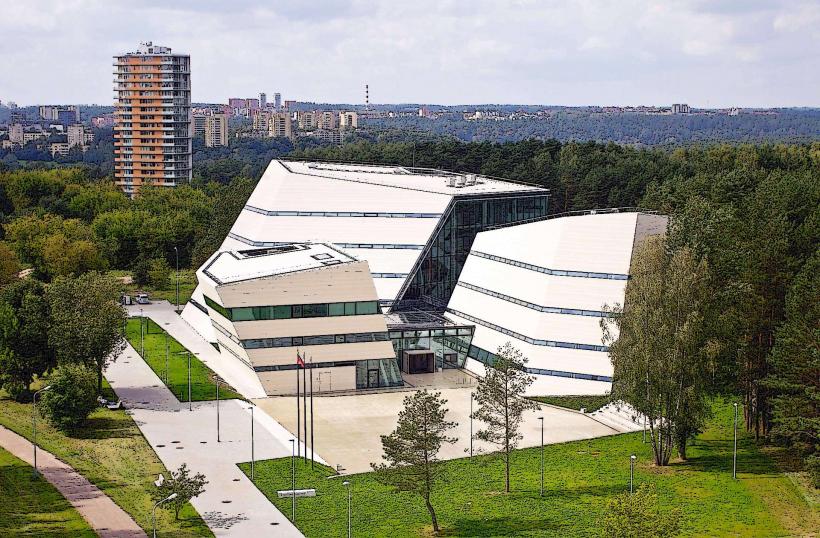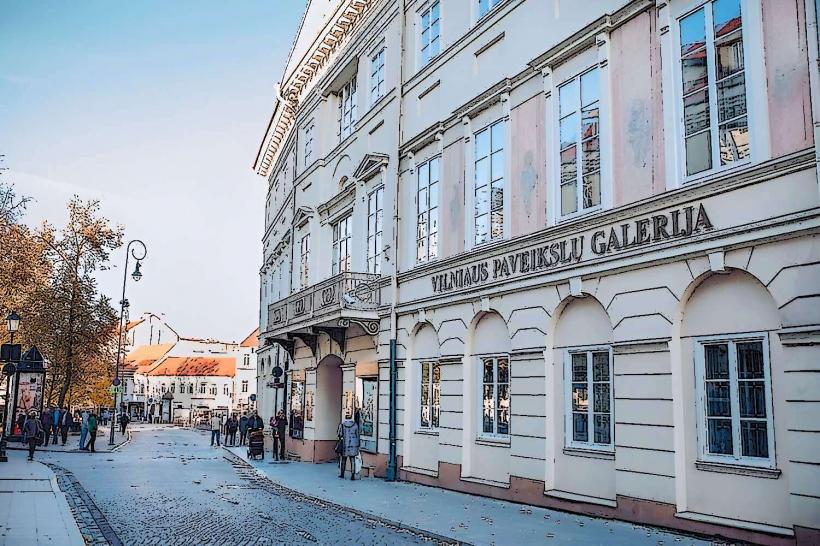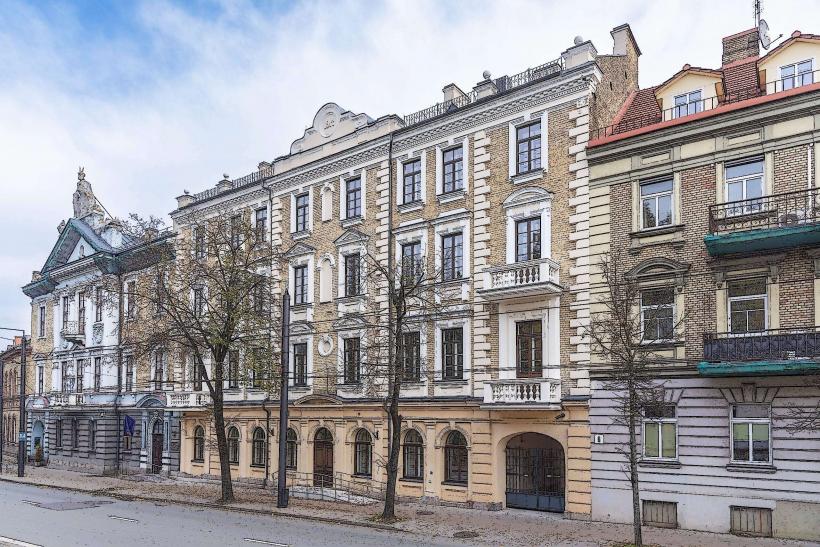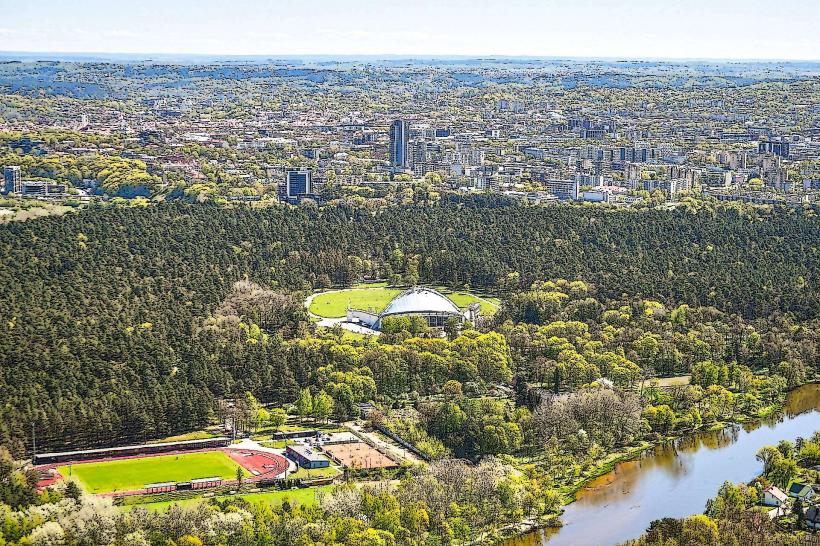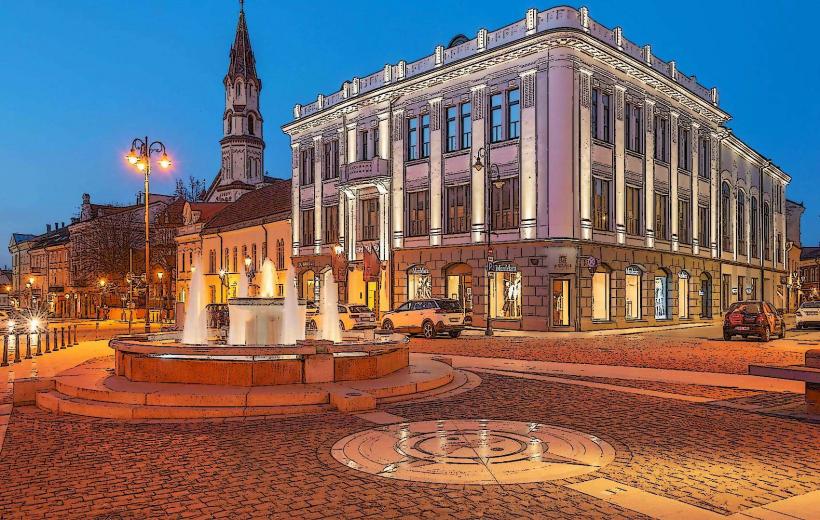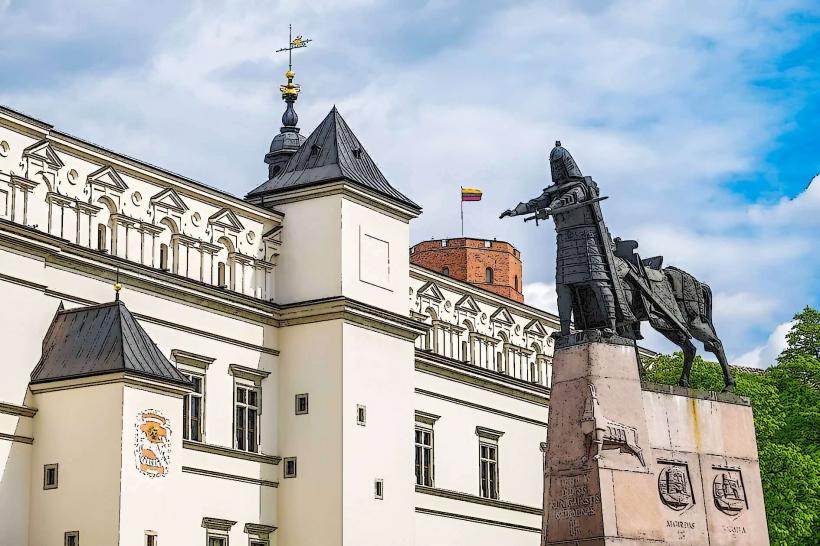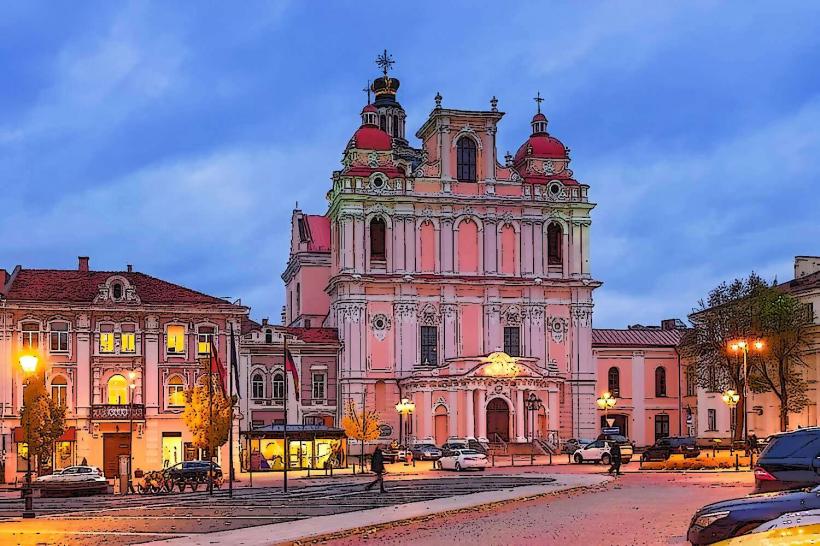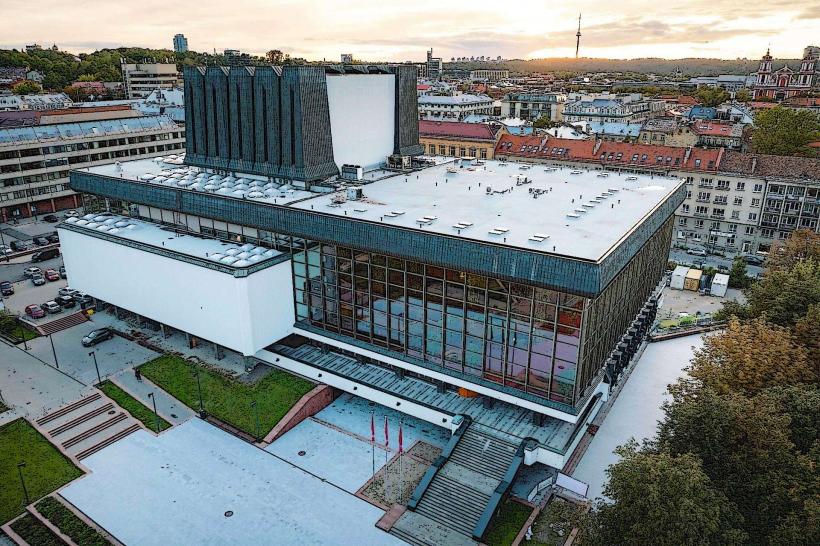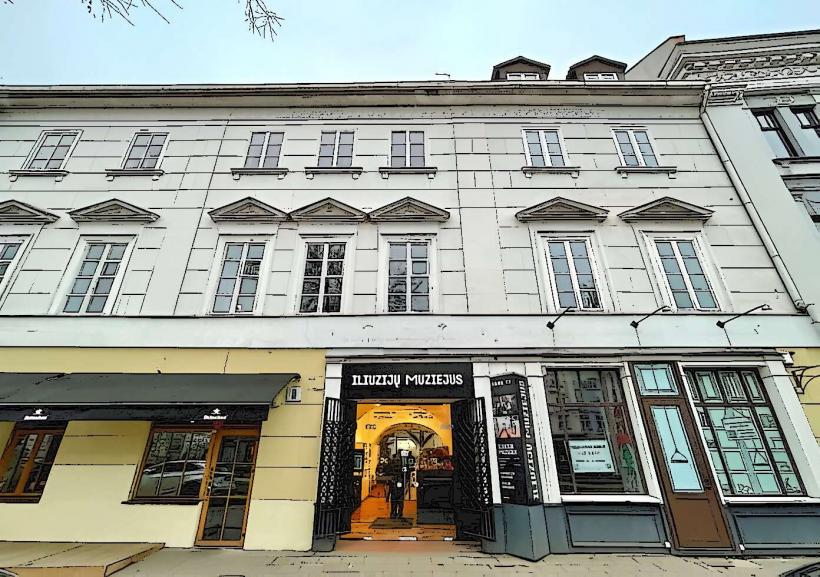Information
Landmark: Vilnius UniversityCity: Vilnius
Country: Lithuania
Continent: Europe
Vilnius University (Vilniaus universitetas)
Vilnius University, founded in 1579, is the oldest and most prestigious university in Lithuania and one of the oldest in Eastern Europe. The university is deeply intertwined with the history, culture, and intellectual development of Lithuania, and it has played a significant role in the region's education and scientific progress over the centuries.
Historical Background
Foundation: Vilnius University was established by the Jesuit order under the initiative of Stefan Batory, the King of Poland and Grand Duke of Lithuania. The founding of the university was part of the wider movement to promote education and culture in the region. Initially, it served to educate clergy but later expanded to other disciplines, becoming a major intellectual center.
Early Years and Influence: The university played a key role in the intellectual life of the Grand Duchy of Lithuania. It attracted scholars from across Europe and became one of the most prominent educational institutions in the region, particularly known for its work in theology, philosophy, law, and the sciences.
Political Turmoil and Russian Empire: The university faced several challenges over the centuries. In the late 18th century, following the partitions of the Polish-Lithuanian Commonwealth, Vilnius University came under the control of the Russian Empire. This period brought significant political suppression, particularly after the November Uprising of 1830-1831, when the university was closed for several years, and Russian authorities imposed stricter controls on education and intellectual life in Lithuania.
Independence and Soviet Period: During the 20th century, Vilnius University experienced fluctuations in its influence and role, particularly after the independence of Lithuania in 1918 and during the Soviet occupation. The university continued to operate under Soviet rule, though the educational and scientific landscape was shaped by Soviet ideology. After Lithuania regained its independence in 1990, the university reasserted its role as a leading academic institution.
Architecture and Campus
Historic Architecture: The university's campus is a blend of architectural styles, representing the evolution of the institution over the centuries. The Vilnius University campus is located in the heart of Vilnius Old Town, a UNESCO World Heritage site. The buildings are a fascinating mix of Renaissance, Baroque, Classical, and Neoclassical styles, reflecting the university’s long history and changing political and cultural contexts.
Main Building: The Main Building (Didžioji aula) of the university is one of the most important landmarks, a fine example of Baroque architecture. It features a grand entrance and ornate decorations, including sculptures and frescoes. The University Courtyard, with its serene and elegant atmosphere, is surrounded by several historical buildings, including the Faculty of Philosophy and the Faculty of Theology.
St. John's Church: One of the most beautiful features of the campus is St. John’s Church (Šv. Jonų bažnyčia), located in the heart of the university. The church, built in the early 17th century, is a prime example of Baroque architecture and is often used for musical concerts and other events. The bell tower of the church offers a panoramic view of Vilnius and is one of the city's prominent landmarks.
Botanical Garden: The university also has a beautiful Botanical Garden, located in the suburb of Kairėnai, just outside the city center. The garden is one of the oldest in Lithuania and is home to a wide variety of plant species from around the world.
Academic Reputation and Contribution
Early Contributions to Education: Throughout its history, Vilnius University has been a leading institution for philosophy, theology, and the sciences. It attracted leading scholars from many countries and was a key center for intellectual exchange in the region. In the 17th and 18th centuries, the university played a role in shaping the cultural and political discourse of the Grand Duchy of Lithuania.
Modern Education: Today, Vilnius University is a modern educational institution offering a broad range of programs in various fields, including the humanities, sciences, social sciences, engineering, and the arts. It is one of the leading universities in the Baltic States and a prominent research institution in Eastern Europe.
Research Excellence: The university is renowned for its research in natural sciences, engineering, social sciences, and humanities. It has a number of research centers and is involved in numerous international research collaborations, particularly in areas such as biotechnology, materials science, and environmental studies.
International Collaborations: Vilnius University has developed strong partnerships with other universities and research institutions around the world. It is a member of the University of the Baltic Sea Region and participates in various Erasmus programs, offering opportunities for exchange students and research collaborations.
Notable Alumni and Faculty: Over the centuries, Vilnius University has produced many influential figures in the fields of science, politics, literature, and culture. Notable alumni include Mikołaj Kopernik (Nicolaus Copernicus), the famous astronomer, who studied at the university, as well as numerous writers, philosophers, and politicians.
Cultural and Social Role
Cultural Hub: Beyond its academic role, Vilnius University is an important cultural institution in Lithuania. It hosts various cultural events, lectures, and exhibitions that contribute to the intellectual life of Vilnius and the country. The university’s concert halls and theaters often feature performances by students and prominent cultural figures.
Public Engagement: The university also plays a key role in the broader social and political life of Lithuania. Its faculty members and students have been involved in shaping public policy and have been active in movements advocating for Lithuanian independence and democratic values.
University Museum: The Vilnius University Museum (Vilniaus universiteto muziejus) offers visitors insight into the university's long history, showcasing rare manuscripts, historical documents, and artifacts from the university's past. It provides a detailed account of the university's evolution and its influence on Lithuanian culture and education.
Vilnius University Today
Student Body and Diversity: Vilnius University is home to a diverse student body, including both Lithuanian and international students. It offers programs at the undergraduate, graduate, and doctoral levels, and is known for its welcoming environment and commitment to academic excellence.
Modern Facilities: The university has modern facilities, including libraries, research labs, and student services. The Vilnius University Library is one of the largest and most important academic libraries in Lithuania, holding extensive collections of books, journals, and historical archives.
Innovation and Future: As Lithuania’s academic and intellectual center, Vilnius University continues to push forward with innovation in education, research, and technology. The university is committed to fostering a collaborative environment that encourages students to explore new ideas and contribute to the advancement of knowledge.
Conclusion
Vilnius University is not only a key educational institution in Lithuania but also a historical symbol of the nation’s intellectual and cultural development. Its rich history, impressive architecture, and contributions to science, culture, and society make it a central part of Vilnius' identity. The university’s legacy continues to influence Lithuania’s future, and it remains a beacon of education and research in the region. Whether as a place of learning, a cultural center, or a historical landmark, Vilnius University holds a unique and vital place in Lithuania’s past and present.

